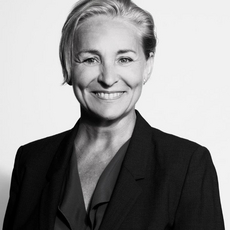Editorial
Issue 2015/01
Saving the Enemy? Military Medical Personnel under Fire
After numerous encounters with military medical personnel from Hamburg to Mazar-i-Sharif, I realized how ethical issues are crucial and pressing matters in military medicine. The need for guidance in a time when the deployment scenarios and the responsibilities of medical personnel are changing substantially, made us choose military medical ethics as a key topic.
Reports from specific deployment situations illustrate how difficult it is to implement the rules of humanitarian international law in practice. Who should be treated first in light of scarce resources, the wounded comrade, the civilian, or the enemy?
According to the 1949 Geneva Convention, all parties involved in conflict are obliged to treat and care for the sick and wounded “humanely, without any adverse distinction founded on race, colour, religion or faith, sex, birth or wealth, or any other similar criteria.” Military medical personnel face the challenge of unifying two roles difficult to reconcile – doctor and soldier – each of which being subject to their own code of conduct. Which code should military personnel follow, the ethos of their civilian medical colleagues or the one resulting from a military frame of reference? Should they base their judgements and decisions exclusively on the principles of medical ethics, or is it possible for one specific field of ethics to meet the unique challenges of both professional worlds?
Medical ethics is rooted in the Hippocratic oath and today’s most prominent principles of medical ethics can be traced back to the ethicists Tom I. Beauchamp and James F. Childress. These principles are: respect for patient autonomy, the principle of doing no harm, patient care, and a principle of justice. On the other hand, there are two central principles of warfare (ius in bello) which are established in International Humanitarian Law: the distinction between combatants and civilians, and the principle of proportionality of violence.
The controversial nature of these topics and the need for an international debate were also highlighted at the Military Medical Ethics Symposium held by zebis last year in the Catholic Academy in Munich. Over 50 military doctors, paramedics, military chaplains and officers discussed codes of conduct, ethical issues and international law, based on specific deployment situations, with experts in working groups.
“Saving the Enemy? Military Medical Personnel under Fire” – the third issue of “Ethics and Armed Forces” brings together expertise and experience as well as different professions and approaches. Practitioners and academics, medical personnel and civilian helpers contribute to the debate, providing insights from medical, military, international law and ethical perspectives.
Accordingly, the articles mirror the debate on military necessity and impartial medical care in armed conflicts from opposing ethical positions. The topical subject of “human enhancement” for soldiers is discussed, alongside with the fundamental question of the options and limits of cooperation between civilian and military helpers in conflict and catastrophe deployments.
I would like to thank everyone who contributed to the important international debate on military medical ethics in this issue. My thanks go to the authors, publishing editors and not least the editorial team.
Read the magazine
